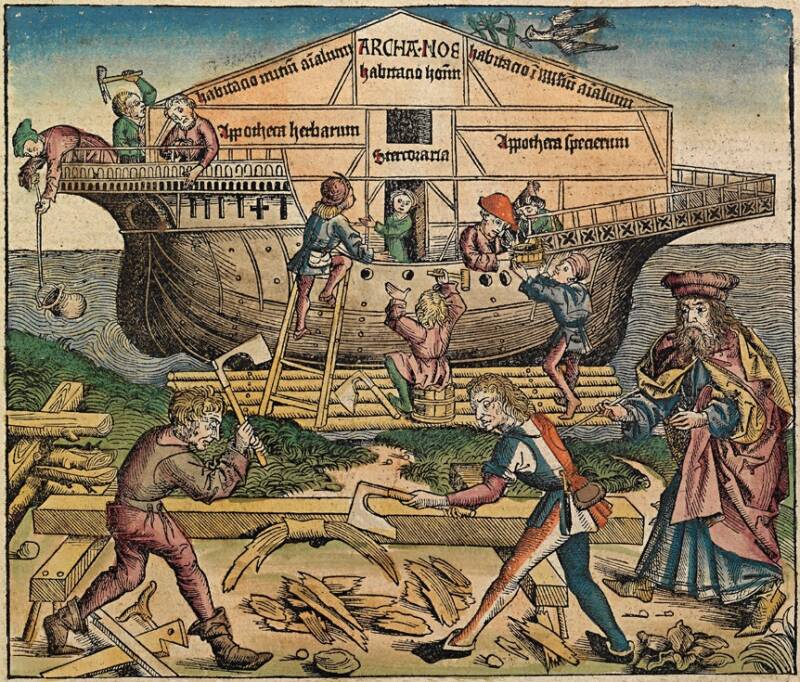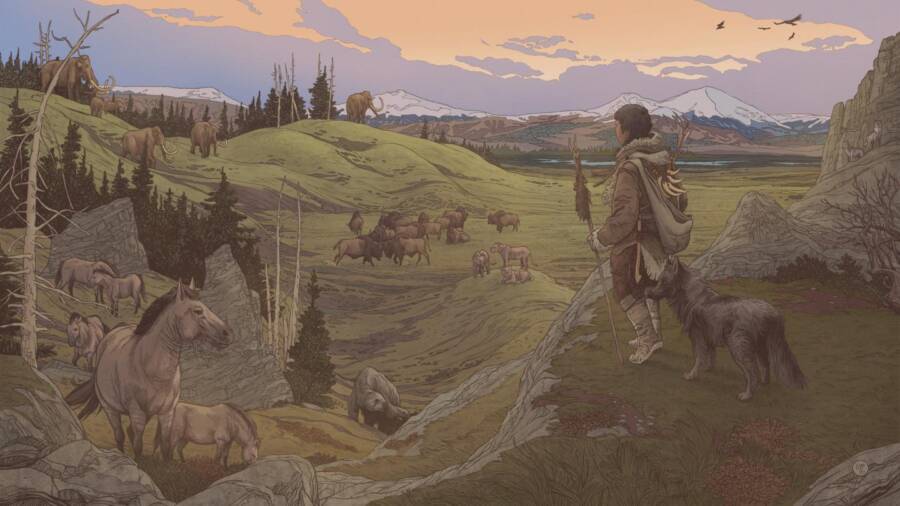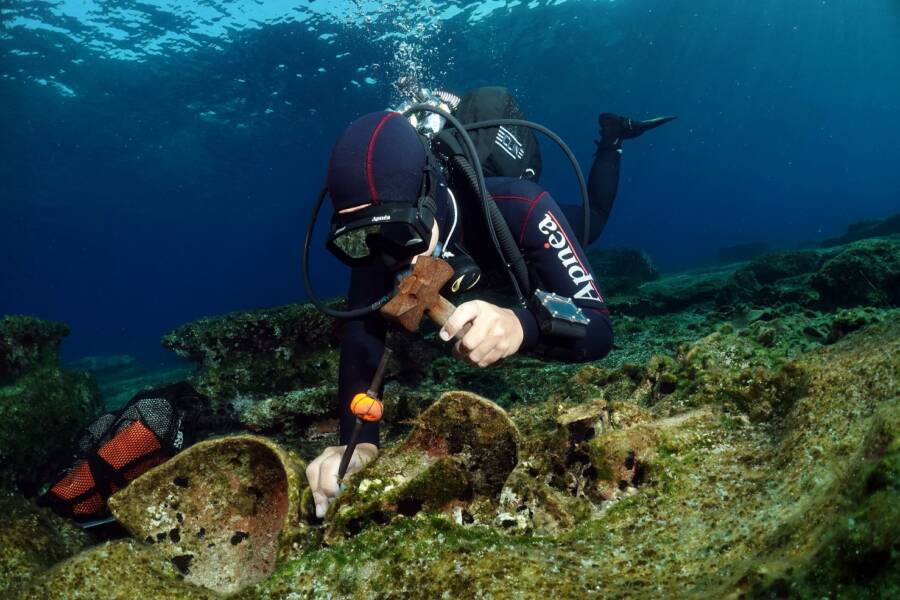"Fake news" in Noah's Ark story discovered, history of canine domestication upended, trove of ancient shipwrecks found.
God Used ‘Fake News’ And Puns To Trick Everyone Into Building The Ark, Ancient Tablet Proves

Wikimedia CommonsA 15th-century German illustration of the Noah’s Ark story.
An English Assyriologist named Martin Worthington recently uncovered hidden meanings in the 3,000-year-old Babylonian tablet that tells the original version of the Noah’s Ark story. The shocking new analysis shows that, when God commanded everyone to build the ark, he was using crafty puns and double meanings to trick everyone into thinking that a rain of food was coming, when in fact it was a deadly flood.
“It may be the earliest ever example of fake news,” Worthington said.
Learn the full story of how God doomed his followers before the flood.
First Settlers In The Americas Brought Domesticated Wolves With Them, Study Says

Ettore Mazza/TwitterNew DNA evidence suggests dogs were domesticated in Siberia as long as 23,000 years ago before traveling to the Americas alongside humans.
Dogs have been considered man’s best friend for millennia but when, exactly, did this loyal relationship begin? According to a new study, our furry companions were domesticated much earlier than previously thought — and were brought to the Americas by the first people to settle there.
An international research team focused on both the genetic and archaeological records of ancient dogs and people to make this assessment. They discovered that the first humans to arrive in the Americas all the way from Siberia in northeast Asia more than 15,000 years ago were accompanied by their dogs, which means that wolves must have been domesticated sometime before this.
Dig deeper in this report.
Trove Of ‘Ancient Treasures’ Discovered In A Third-Century Roman Shipwreck Near Greece

Greek Ministry of CultureThe shipwrecks were first uncovered in the fall of 2020.
In late 2020, researchers in Greece made the discovery of a lifetime. Just off the coast of the island of Kasos lay four shipwrecks. Not only did these shipwrecks span millennia, they also contained ancient artifacts that now serve as a window through time — and offer a glimpse into some of the trade networks of the ancient world.
The four ships were all dated to different historical periods — one from the Hellenistic era in the first century B.C., one from the Classical era in the fifth century B.C., one from the second or third century A.D., and one that was fairly modern.
Read on here.





